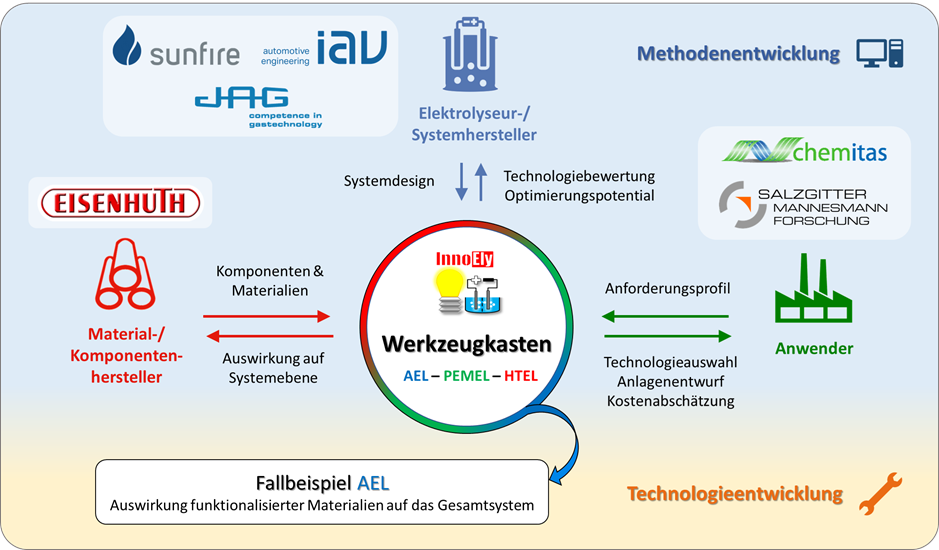
Contact: Dr.-Ing. Andreas Lindermeir
The "Water Electrolysis Innovation Laboratory (InnoEly)" project aims to build a bridge from material development to the system design of water electrolysers. Together with industrial partners, a toolbox of experimental and model-based methods is being developed that serves both the perspective of the plant operator and that of the material developer and electrolyser manufacturer. The toolbox contains modelling and characterization components that are used for all three relevant water electrolysis technologies, alkaline electrolysis (AEL), acidic proton exchange membrane electrolysis (PEMEL) and high-temperature electrolysis (HTEL).
The entire value chain for the production of electrolyzers is considered in the project. The characterization tool includes a series of electro/physicochemical methods for the investigation of cell components used on a large scale (such as electrodes, bipolar plates, etc.) in order to analyze the currently established materials in a uniform manner on the one hand and to identify the potential for optimizing the technology by integrating new types of components on the other. These results are then transferred to model-theoretical considerations of electrolysis technologies, starting with the individual cell and describing the stack through to the system and plant level.
The resulting modeling tool enables application-specific technology selection and dimensioning, as well as the integration of the identified/suitable electrolyser into existing and new plants. In addition, these tools can be used to identify prospective development and savings potential through improved design of materials, cell components and operating strategies. By directly linking modelling with material development and cell characterization, future developments can be more easily identified and evaluated on the basis of theoretical model considerations.
The InnoEly project will help to efficiently exploit the value creation potential of the hydrogen economy in Lower Saxony, to intensify the close cooperation between research and industry and to enable the targeted further development of electrolysis technologies.
Further information here.


